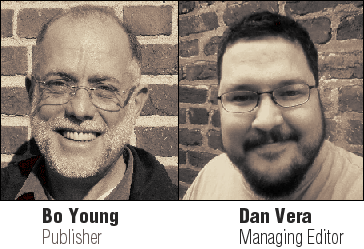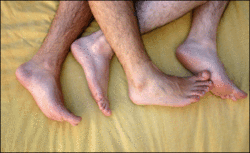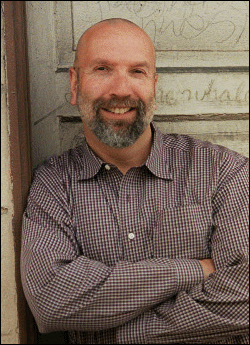An Online Exclusive from White Crane
Culture Jamming
Bringing creative energy to Youth-adult partnerships
BY STEPHEN SILHA
Every time we gather, we create culture.
It doesn’t matter how many of us there are… if we’re alone, with a friend/lover, or a community meeting, when eyes meet—we’re creating culture.
I became aware of this when I volunteered to help with a week-long Power of Hope workshop for teens and caring adults in 2000. When teens and adults consciously create culture together, a magical synergy of hope and experience, innocence and potency emerges.
I’m convinced that without creative partnerships between elders and youth, we humans will self-destruct. It’s part of evolution’s call that we co-create our future.
Yet, as Power of Hope’s co-founder, Charlie Murphy (yes, the gay singer/songwriter who wrote “Burning Times” and “Gay Spirit”) says, there’s a silent apartheid between youth and adults in today’s culture which makes true partnerships challenging.
“Adults project their despair about the future onto the young,” he says. “They smother them with material things and overactivity, which means they don’t get a chance to develop their interior side.”
I’ve been doing work with youth for many years—in journalism, in community service, and most recently in a series of youth-adult dialogues on Vashon Island, near Seattle, where I live.
The essence of the youth-adult dialogues, which we (a group of youth and adults from my community) learned from going to Whidbey Island and experiencing a Power of Hope dialogue, is creating a field of common creative play as a predecessor to conversation.
“Youth thrive in the company of adults who are passionate about life, alive to their own creativity,” Charlie says. Gay men, in many cases, are ready to create these partnerships.
It’s not easy with all the built in stereotypes and prejudices we and they carry about the “other.” This includes sexual stereotypes on all sides of the equation.
Why not apply some of the principles that underlie Radical Faerie culture to relationships between youth and elders?
For example, subject-subject consciousness. What does it look like when neither the youth nor the elder is an object—both are subjects…of their own lives, of the community, of their relationships? Or as Tony Kushner might say, what if we look at each other (across the generations) as prophets?
“Adults need to pursue their own calling so youth can do the same, appropriate to their stages in life,” Charlie suggests. “Education could change from a dead one-way street—fitting kids into roles—to a vibrant conversation, where everybody is finding their calling. We need to create a zone where we’re all on our creative edge.”
Using creative writing, theater improv, visual and verbal art, youth and adults can create together, raising their voices and putting out visions of a future that’s fun, heart-centered, whole.
Why not acknowledge the inner life? Of ourselves, of each other. A little silence welcomes those inner voices. The way of the heart circle—speaking and listening from a deeper place—can enrich even one-on-one encounters.
Charlie has found that “young people are deeper, more caring than we generally give them credit for. So much so, they don’t realize it themselves.” This is also true of the young parts of ourselves, which are awakened and enlivened by creative contact with youth.
Another faerie principle that might help with intergenerational communication is “askance” —looking at things sideways, from different angles, with a dose of humor.
I was amazed when I helped a group of kids at a Power of Hope summer camp create a “Zine” which they called “Rising.” Instead of asking people to write articles, they created graffiti boards around the camp, in bathrooms and other places, where people felt free to express themselves. The Zine was filled with wisdom and silliness from those graffiti boards—a new news source in the future?
As we reinvent various aspects of our culture that need fixing—health care, communication, transportation, governance, relationship to spirit—collaborations between those who’ve “seen it all” and those who “see a better way” will make it possible.
For more information on Power of Hope, visit their website.
Stephen Silha is a freelance writer, facilitator and communications consultant in Washington State. He can be contacted via his website. www.goodnewsgooddeeds.org

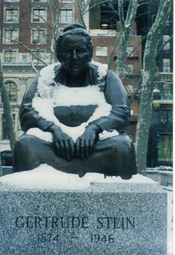
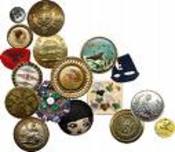
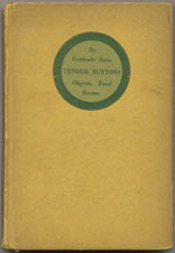

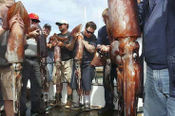
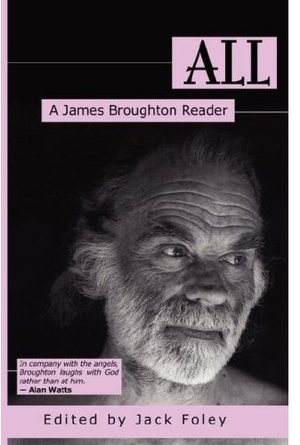 White Crane Books
White Crane Books